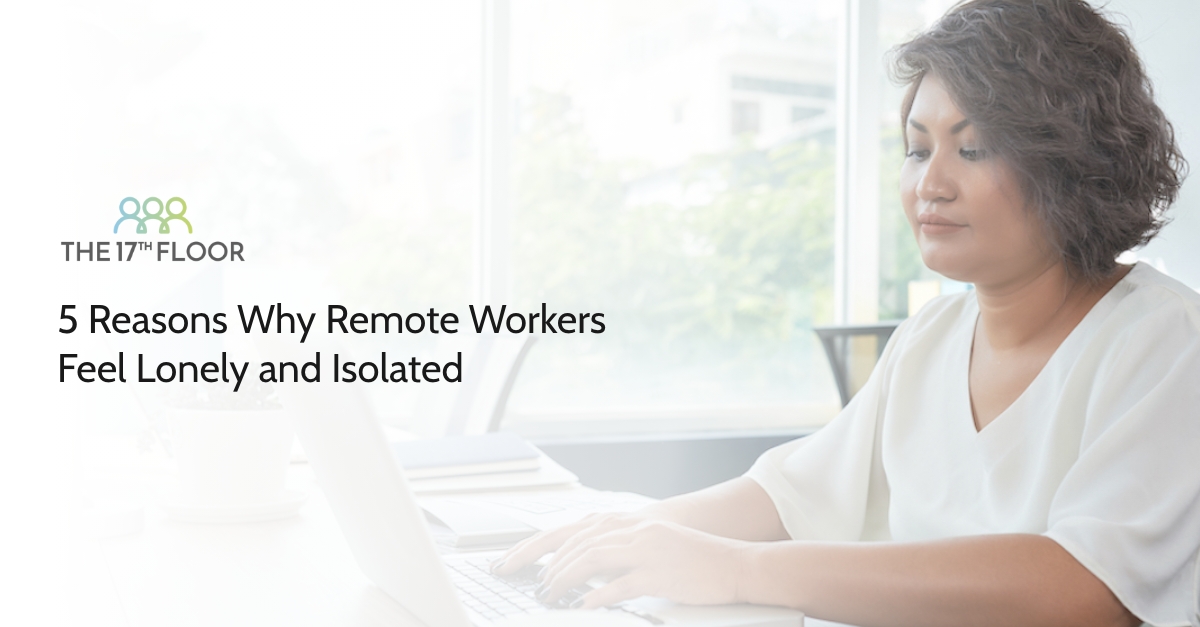
Hybrid work remains the dominant form of work. Employees at 61% of the companies surveyed by Colliers Canada are working under a hybrid model, which is down 5% from their previous report. This only shows us how many people are working remotely, either for several days a week or permanently.
In a study of 31,000 people from 31 countries published by Microsoft in 2022, 53% of survey respondents were more likely to prioritize their health and wellbeing over work than before the pandemic. However, working from home can become challenging for some people.
Remote work and subsequent work-life balance and job autonomy can improve job satisfaction, but employees may feel socially isolated, guilty and try to overcompensate.
In order to address this growing problem, both employees and employers need to identify when these issues might be arising. It can be difficult for the worker to disclose this situation to their boss. This is why it is important for managers to be aware of the underlying causes of this matter and be able to detect it before it affects the employee's mental health and the company's productivity.
5 Reasons Why Remote Workers Feel Lonely and Detached
1. Lack of In-person Interaction
Remote workers may feel isolated from their colleagues since they don't have the same opportunities for casual socializing or team bonding that can happen in an office setting. In addition, more than two-thirds of full-time remote workers surveyed by PwC are concerned about missing out on development opportunities.
2. Communication Barriers
Communication between these workers and their teams may be limited to Zoom calls, emails, or instant messaging, which can make it difficult to build relationships and feel included. Even if they do have all the tools needed to communicate with their co-workers, common problems like Zoom Fatigue can negatively impact their mental health.
In the “How to design a company culture and establish its values” webinar The 17th Floor hosted in October, Amin Lalani, Co-CEO of Avanti, shared his own experience dealing with Zoom Fatigue and how it’s affecting many remote workers nowadays.
Zoom fatigue is something that's real, that's come out of a distributed work model.
3. Different Time Zones
Especially in Canada, remote employees in different time zones may have limited opportunities to connect with colleagues in real-time, which can lead to feelings of exclusion, not to mention slow productivity and other impacts on the company’s processes.
4. Lack of Structure
Without the structure of a traditional office environment, remote workers may struggle to establish a routine and feel a sense of purpose or connection to their work and colleagues. For example, here is some good advice from two community members regarding time management and workspace.
When working at home, set some physical boundaries if at all possible. Have your work set up in a room you can walk into or out of, and close the door at the end of the day. Once I figured this out and moved away from the dining room table, I found myself being more productive both in my work AND my personal time.
Treat working from home the same as when you go to the office. Stick to the same morning routine getting ready, but instead of heading out the door ... just head to your home office. Try to stick to the same schedule and make sure you take breaks: take a walk with the dog, toss in a load of laundry, or whatever gets you away from your computer. Finish work at the same time you would in the office. I like to take a walk at lunch and at the end of the day to separate the end of work/home life!
5. Misunderstandings and Assumptions
Remote employees may feel excluded or misunderstood when their colleagues make assumptions about their work habits or availability due to their remote status. To address these issues, companies can provide them with opportunities for virtual socializing, regular check-ins with colleagues and managers, and clear guidelines for communication and work expectations.
Have you ever felt lonely working from home? Let us know in the comments section below how you cope with feelings of isolation.
Sources:
Did you find this article useful? Share your feedback
Join the Conversation
Grow Your Network, Build Your Career
4 Comments
Lack of interaction that doesn’t require a screen is a big isolator for me–I quite enjoy being able to just walk to a coworker’s office to ask a question, or just have a quick chat to touch base.
2 years agoAt home, I have a designated area for my work and I set sechedule for myself too. I find I am more productive and have more freedom and I don’t feel lonely at all.
2 years agoI do appreciate the social interaction that happens in person. The interactions with team members, when working from home, are always subject specific and don’t leave much room for personal connections. Overall, I find I have more benefits working from home than drawbacks but social connections is definitely one of the drawbacks.
2 years agoI started going in the office 3 days. I feel very happy having lunch all together and also sharing nice moments with my coworkers.
2 years ago